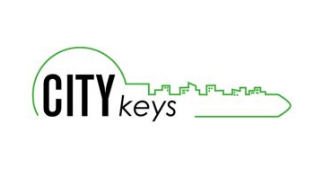SPARCS network
SPARCS promotes active collaboration with all ongoing Horizon 2020 Smart Cities and Communities SCC1 projects, with a view to learning from their experience and exchanging best practices. With these goals in mind, SPARCS cooperates with projects such as Iris, STARDUST, MatchUP, Atelier and others.
This collaboration promotes and facilitates knowledge exchange between the project partners. Collaboration generally takes the form of participation in meetings, organisation of joint events, participation in conferences and in the activities of the relevant task groups, such as the task group for communication and dissemination and the task group for replication, for example.

Smart cities initiatives
The role of Scalable Cities is to identify and promote energy solutions and business models that can be scaled up and replicated across Europe. Scalable Cities represents 120 cities involved in 18 Smart Cities and Communities projects funded by Horizon 2020. Working in consortia with academia, industry, associations and consultants, they implement more than 550 demonstrations of technological and social innovations in the areas of mobility and logistics, buildings, urban data and ICT infrastructure, citizen engagement as well as urban governance.

The Smart Cities Marketplace is a major market-changing enterprise supported by the European Commission. It brings together cities, industries, SMEs, investors, researchers and other smart city actors. The Marketplace offers insight into European smart city good practice, allowing you to explore which approach might fit your smart city project. It also represents a community of experts that can help you in shaping your smart city project so that you get your plan and business case ready for financing and presenting to investors.

Ongoing SCC projects
MAtchUP is an EU-funded Smart City project involving three lighthouse cities and four follower cities. MAtchUP cities are joining forces to reshape their social, economic and environmental models and to promote social inclusion, liveability and prosperity for their citizens. MAtchUP is designing and implementing a palette of innovative solutions in the energy, mobility and ICT sectors that will serve as a model of urban transformation for other cities in Europe and beyond.

IRIS is a Horizon 2020 project that is being developed around three lighthouse cities – Utrecht (NL), Nice (FR), and Gothenburg (SE). These cities are working as collaborators and test-beds for follower cities – Vaasa (FI), Alexandroupolis (GR), Santa Cruz de Tenerife (ES) and Focsani (RO). Each city will draw upon a mix of universities and research organisations, local authorities, innovation agencies and private expertise to accelerate entire communities to adopt ambitious energy, mobility and ICT initiatives.

STARDUST is an EU Horizon 2020 Smart Cities project that brings together advanced European cities to form a constellation of ‘innovation islands’ that act as exemplary models of smart, highly efficient, intelligent and citizen-oriented cities. Technical green solutions and innovative non-technical solutions are being implemented and validated, enabling them to be bankable and replicable by other cities. STARDUST will show the way for cities to achieve a more sustainable path by interweaving innovation and imagination.

Within the +CityxChange (Positive City ExChange) project, the cities of Trondheim (NO), Limerick (IE), Alba Iulia (RO), Písek (CZ), Sestao (ES), Smolyan (BG) and Võru (EE) are experimenting on how to become leading cities integrating smart positive energy solutions. Using digital services, quality of life will be improved for and with the involvement of citizens, more energy will be produced than consumed, and experiences exchanged with cities across Europe, to learn faster together.
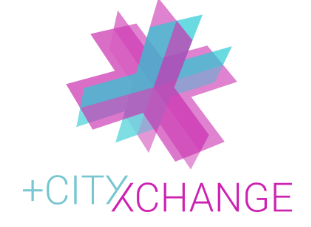
Coordinated by the CARTIF Foundation, MAKING-CITY is a 60-month Horizon 2020 project launched in 2018. It aims to address and demonstrate the urban energy system transformation towards smart and low-carbon cities, based on the Positive Energy District (PED) concept. The PED concept will be tested and validated in 2 Lighthouse cities: Groningen (NL) and Oulu (FI). It will be then replicated in 6 Follower cities: Bassano del Grappa (IT), Kadıköy (TU), León (ES), Lublin (PL), Poprad (SK) and Vidin (BG).

ATELIER is an AmsTErdam and BiLbao cItizen drivEn smaRt cities project funded by the European Commission. Coordinated by the City of Amsterdam, the project combines the expertise and the commitment of 30 partners from 11 countries. ATELIER focuses on developing citizen-driven Positive Energy Districts (PEDs) in the two Lighthouse Cities Amsterdam (NL) and Bilbao (ES). Their successful implementations will then be replicated and tested for feasibility in six Fellow Cities.

Involving cities with heritage sites in Europe’s renewable energy transition is the mission of the EU-funded smart city project POCITYF. POCITYF will demonstrate innovative smart city technologies in two Lighthouse Cities, Alkmaar (NL) and Evora (PT), and replicate them in 6 Fellow Cities. POCITYF combines Positive Energy Blocks (PEB) with grid flexibility, e-mobility, innovative ICT technologies and citizen engagement strategies, while respecting the urban cultural heritage.

Funded by the European Commission’s Horizon 2020 Framework Programme, RESPONSE aims to establish a strategic vision for Smart Cities Energy Transition: Climate-neutral cities by 2050. RESPONSE aims to turn energy sustainability into a do-able vision by solving the energy trilemma (security, equity/affordability, environmental sustainability) at building, block and district levels in smart cities.
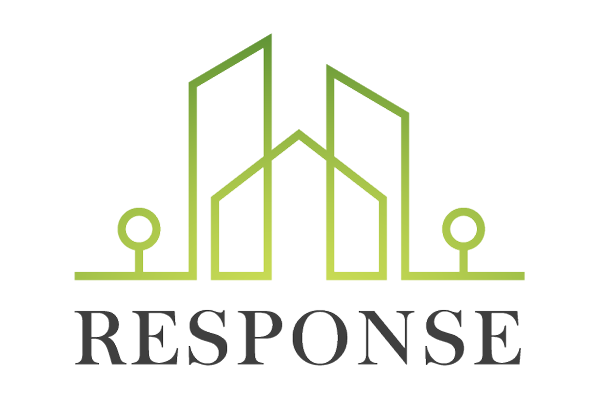
Completed SCC projects
REPLICATE: REnaissance of PLaces with Innovative Citizenship And TEchnologies was a European research and development project that aimed to deploy integrated energy, mobility and ICT solutions in city districts. There were 3 lead cities – San Sebastian (ES), Florence (IT) and Bristol (UK), in addition to ‘follower’ cities that looked into replicating – Essen (DE), Nilüfer (TU) and Lausanne (CH), and ‘observer’ cities – Guangzhou (CN) and Bogota (CO), as well as international networks that took part in learning and dissemination of results. The Consortium consisted of 38 partners
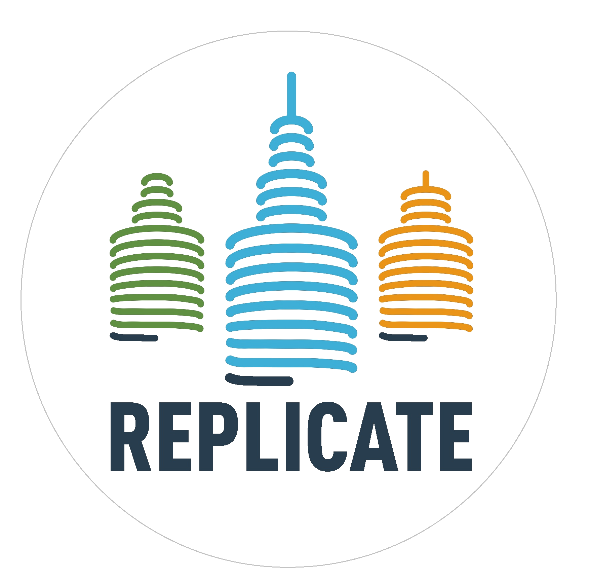
RUGGEDISED was a smart city project funded under the European Union’s Horizon 2020 research and innovation programme. It brought together three lighthouse cities: Rotterdam (NL), Glasgow (UK) and Umeå (SE) and three follower cities: Brno (CZ), Gdansk (PL) and Parma (IT) to test, implement and accelerate the smart city model across Europe.

The three-point project Triangulum demonstrated, disseminated and replicated solutions and frameworks for Europe’s future smart cities. The Lighthouse Cities Manchester (UK), Eindhoven (NL) and Stavanger (NO) served as testbeds for innovative projects focusing on sustainable mobility, energy, ICT and business opportunities. The project consortium consisting of 22 partners worked together to develop and implement smart solutions in order to replicate them in the three follower cities

REMOURBAN developed and tested a sustainable urban development model that combined the energy, mobility and ICT sectors to improve efficiency and reduce greenhouse gas emissions in the cities of Valladolid (ES), Nottingham (UK) and Tepebasi (TU).

SmartEnCity, coordinated by TECNALIA Research Innovation, brought together 35 partners from six countries to make Smart Zero Carbon Cities a reality in Europe. The underlying Smart Zero Carbon City concept involves keeping a city’s carbon footprint and energy demand to a minimum by using demand-controlled technologies that save energy and raise awareness. This approach was initially defined in detail, planned and implemented in the Lighthouse demonstrator cities: Vitoria-Gasteiz (ES),Tartu (ET) and Sonderborg (DK).

mySMARTLife was a project funded under the European Union’s Horizon 2020 research and innovation programme. Under the coordination of CARTIF Technology Centre, 27 partners from 6 countries collaborated to make sustainable cities with smart people and a smart economy a reality. Activities took place in the three demonstration cities Nantes (FR), Hamburg (DE) and Helsinki (FI). The three follower cities Bydgoszcz (PL), Rijeka (HR) and Palencia (ES) learned from these experiences.
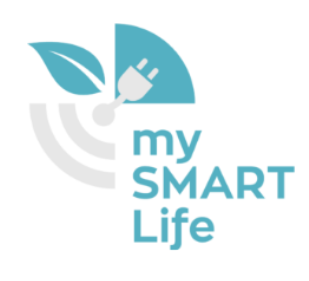
The Sharing Cities ‘lighthouse’ programme was a proving ground for a better, common approach to making smart cities a reality. By fostering international collaboration between industry and cities, the project developed affordable, integrated, commercial-scale smart city solutions with a high market potential. Sharing Cities offered a framework for citizen engagement and collaboration at local level, thereby strengthening trust between cities and citizens. The project aimed to engage over 100 municipalities across Europe.

In a rapidly urbanising world cities need to become smarter to respond to citizen needs and to reduce their environmental footprint. GrowSmarter brought together cities and industry to integrate and demonstrate ’12 smart city solutions’ in energy, infrastructure and transport, to provide other cities with valuable insights on how they work in practice and opportunities for replication. The idea was to create a ready market for these smart solutions to support growth and the transition to a smart, sustainable Europe.

The European lighthouse cities Vienna (AT), Munich (DE) and Lyon (FR), the follower cities Santiago de Compostela (ES), Sofia (BG) and Venice (IT), the observer cities Kiev (UA) and Yokohama (JP) came together to improve citizens quality of life. SMARTER TOGETHER prepared the ground for large-scale replication and ensured an in-depth knowledge transfer about the setting up of smart city business models and user-centric innovation in order to contribute to positive societal dynamics.
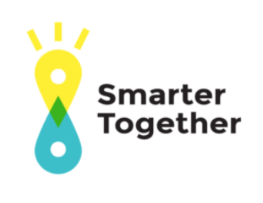
Related Projects
The SINFONIA project is a 55 initiative to deploy large-scale, integrated and scalable energy solutions in mid-sized European cities. At the heart of the initiative is a unique cooperation between the cities of Bolzano and Innsbruck, working hand in hand to achieve 40 to 50% primary energy savings and increase the share of renewables by 20% in two pioneer districts. This will be done through an integrated set of measures combining the retrofitting of more than 100,000m2 of living surface, optimisation of the electricity grid, and solutions for district heating and cooling.

CITyFiED (2014 – 2019) was a successful experience in smart city and energy efficiency retrofitting. An extensive demonstration action was carried out, involving a relevant number of cities and the necessary technological stakeholders, with the aim of maximizing the impact and replication potential from three high level and very ambitious demonstration projects that carried out in the cities of Laguna de Duero (ES), Soma (TU) and Lund (SE).
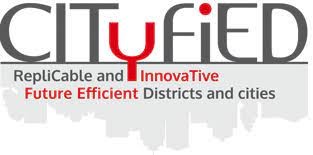
The Smart Cities Information System (SCIS) is a knowledge platform to exchange data, experience and know-how and to collaborate on the creation of smart cities, providing a high quality of life for its citizens in a clean, energy efficient and climate friendly urban environment. SCIS brings together project developers, cities, research institutions, industry, experts and citizens from across Europe.

Eltis facilitates the exchange of information, knowledge and experiences in the field of sustainable urban mobility in Europe. It is aimed at individuals working in transport as well as in related disciplines, including urban and regional development, health, energy and environmental sciences. Created more than 10 years ago, Eltis is now Europe’s main observatory on urban mobility. It is financed by the European Commission’s Directorate General for Mobility and Transport.
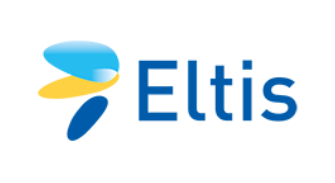
THERMOS (Thermal Energy Resource Modelling and Optimisation System) is an EU Horizon 2020 funded research project (2016 – 2019) which will provide advanced energy system data and models in a user-friendly open-source software to make heat network planning faster, more efficient, and more cost effective. A range of experts from universities, local and city-wide authorities, energy and environmental agencies, and specialist consultancies based in the UK, Spain, Poland, Latvia, Denmark, Germany, Portugal, and Romania are taking part in the project

The research project ZenN, Nearly Zero Energy Neighbourhoods, aims to reduce energy use in existing buildings and neighbourhoods. The project’s goals are to: demonstrate the feasibility of innovative low energy renovation processes for buildings at the neighbourhood scale; identify, optimize and disseminate the most promising management and funding methods to facilitate large-scale implementation; develop, improve and launch ambitious replication plans at several scales.

The EU-GUGLE project aim was to demonstrate the feasibility of nearly-zero energy building renovation models in view of triggering large-scale, Europe-wide replication in smart cities and communities by 2020. Vienna (AT), Aachen (DE), Milan (IT), Sestao (ES), Tampere (FI) and Bratislava (SK) have committed to renovating a total of 226,000m2 of living space during the 5 years of the project, with the objective of achieving 40 to 80% primary energy savings per pilot district while increasing the share of renewable energy sources by 25% by 2018. Gothenburg (SE) and Gaziantep (TR) took part as associated cities.
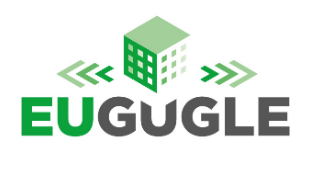
The purpose of the R2CITIES project is to develop and demonstrate replicable strategies for designing, constructing and managing large scale district renovation projects for achieving nearly zero energy cities. These results will open the way for new refurbishments on a European scale within the framework of new urban energy planning strategies. R2CITIES aims to develop and demonstrate an open and easily replicable strategy for designing, constructing, and managing large scale district renovation projects for achieving nearly zero energy cities.
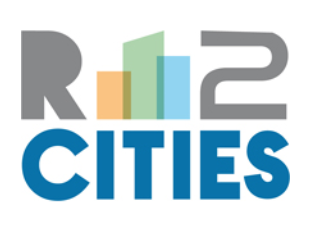
Celsius is a collaboration hub for efficient, integrated heating and cooling solutions supporting cities in their energy transition to carbon-neutral systems. Celsius gathers and shares technical, economic, social and policy expertise. Celsius connects members, exchange and foster innovation, leading to solutions that accelerate sustainable development in Europe and across the world.
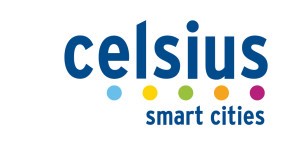
CityZen aims to develop and demonstrate energy efficient cities and to build a methodology and tools for cities, industries and citizens to reach the 20-20-20 targets. Expected Impacts: 20 innovations in Grenoble and Amsterdam; 35,000 tonnes CO2 saved per year; 76,000 m2 renovated residential buildings; 10,000 dwellings connected to a Smart Grid.
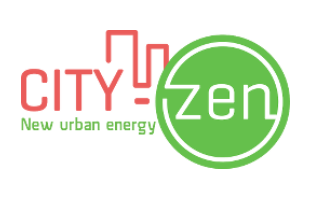
OrganiCity is a service for experimentation, which explores how citizens, businesses and city authorities can work together to create digital solutions to urban challenges.OrganiCity supported 43 experiments over the three years of the project. From Aarhus in Denmark to Santiago De Cali in Colombia, our experiments tested how the OrganiCity service can help address urban challenges in cities around the world. Although the OrganiCity project has now come to an end, the OrganiCity movement is very much alive!
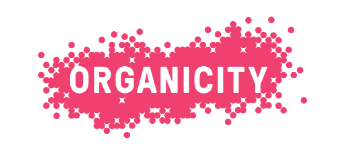
Smart Energy Systems ERA-Net was the product of a joint effort with the Smart Cities Member States Initiative. Furthermore, it had the support of the European Commission under the Horizon 2020 program. It dealt with the topics of Smart Integrated Urban Energy and Transport Systems, Smart Tools and Services for the aforementioned systems, Smart and Big Data, and Smart Governance and Smart citizens.
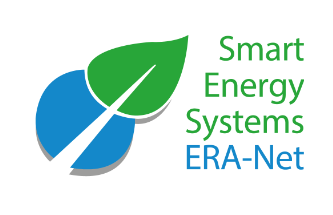
The EU Covenant of Mayors for Climate & Energy brings together thousands of local governments voluntarily committed to implementing EU climate and energy objectives.The Covenant of Mayors was launched in 2008 in Europe with the ambition to gather local governments voluntarily committed to achieving and exceeding the EU climate and energy targets. Not only did the initiative introduce a first-of-its-kind bottom-up approach to energy and climate action, but its success quickly went beyond expectations. The initiative now gathers 7,000+ local and regional authorities across 57 countries.
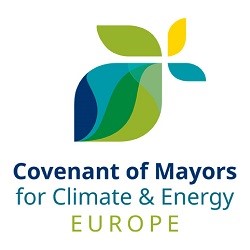
By collecting the wasted heat from both industry and electricity production and using smart district heating grids, it is possible to save all of the natural gas currently used for heating buildings in Europe. This would result in not only monetary savings, but also in a consideration CO2 emissions reduction. Heat Roadmap Europe aims to build evidence that supports the decarbonization of the heating and cooling sector in Europe and to redesign this sector by combining the knowledge of local waste heat conditions and potential savings with an energy system analysis.
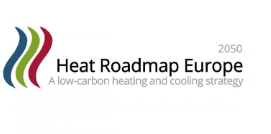
The European Innovation Partnership on Smart Cities and Communities (EIP-SCC) is a major market-changing undertaking supported by the European Commission bringing together cities, industries, SMEs, investors, researchers and other smart city actors.
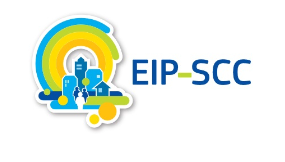
Funded by the European Union HORIZON 2020 programme, CITYkeys (2015 – 2017) developed and validated, with the aid of cities, key performance indicators and data collection procedures for the common and transparent monitoring as well as the comparability of smart city solutions across European cities. The research institutes VTT (FI), AIT (AT), and TNO (NL) cooperated with 5 cities: Rotterdam, Tampere, Vienna, Zagreb and Zaragoza and EUROCITIES to define the needs, analyse existing results and develop recommendations for the use of performance indicators.
